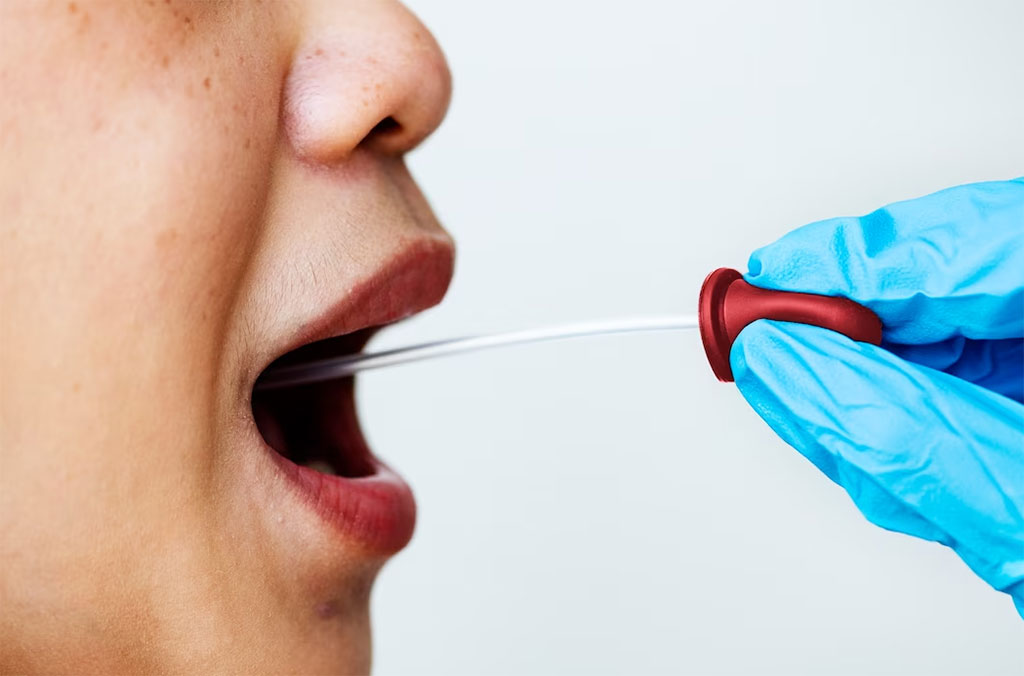Rapid Saliva Test for Diagnosing Stroke to Revolutionize Emergency Treatment
Posted on 21 Jul 2023
Prompt hospital transfer and diagnosis are vital when a stroke is suspected. The phrase "time lost is brain lost" underlines the importance of quick diagnosis and treatment in lowering death risk and mitigating disability severity. Certain treatments, like thrombolysis (clot-dissolving drugs) or mechanical thrombectomy (manual clot extraction), are most effective if given within hours after the first signs of a stroke. At present, ambulance staff utilize symptom checklists to identify potential stroke cases. Comprehensive assessments are typically performed at a Hyperacute Stroke Unit before patients are transferred to a specialized neuroscience unit for treatment, which extends the treatment pathway by at least an hour.
Now, researchers at the University of Birmingham (Birmingham, UK) are set to collaborate on a study that could lead to the development of a rapid, non-invasive diagnostic test to quickly and accurately identify stroke patients who require time-sensitive treatment before permanent brain damage sets in. This success could also transform the way stroke emergencies are handled. The Golden Hour for STroke (GHoST) study seeks to identify biomarkers (small molecules) in blood, urine, or saliva for quick diagnosis, enabling patients to be immediately routed to the most appropriate treatment facility. In earlier research, the team had identified rapid changes in the concentration of specific saliva molecules following a traumatic brain injury. A three-year investigation in elite rugby players demonstrated that these biomarkers could be employed in advanced diagnostic tests for quick and reliable concussion detection.

The GHoST study will adopt the same methodology as these previous successful trials. Trained paramedics will collect saliva, blood, and urine samples from suspected stroke patients within the first hour of symptom onset. Further sampling of blood, saliva, and urine will continue in hospitals while patients receive standard clinical care. The researchers will focus on small non-coding RNAs (sncRNAs) in saliva. These abundant small molecules found in saliva were an exciting discovery in previous studies as they could be used in tests to distinguish between patients with and without concussions. While the GHoST study will be the first to investigate if there are stroke-specific sncRNAs, past studies have identified stroke-specific RNA biomarkers in the blood.
The researchers aim to identify sncRNAs that will accurately diagnose a stroke and differentiate it from stroke-like conditions such as seizures or migraines, which account for 30-40% of suspected stroke cases in emergency ambulance admissions. They will also explore whether biomarkers can distinguish between the two primary types of stroke (ischemic and hemorrhagic) requiring very different treatments. Ischemic stroke, caused by a blood clot, makes up over 80% of strokes and requires either clot-busting drugs or surgical clot removal through an artery (thrombectomy). In contrast, hemorrhagic strokes, caused by a brain bleed, may necessitate brain surgery.
“Having a saliva test would be a massive step forward in pre-hospital diagnosis for stroke and really help people to get the right diagnosis, to get to the right hospital for the right treatment and in the quickest time,” said Dr. Richard Francis, Head of Research at the Stroke Association. “The potential success of this trial may also massively benefit countries without ready access to brain scanning equipment.”
Related Links:
University of Birmingham













